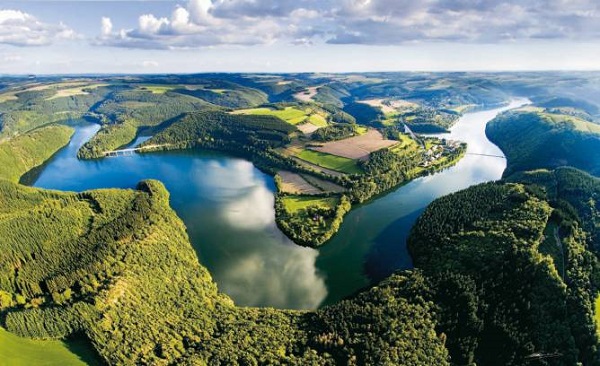
Following the abrormally high concentration of blue algae blooms in the water of the Esch-sur-Sure reservoir in the north of the Grand Duchy during August, the Administration of water management has announced that the regular analyses conducted by the Luxembourg Institute of Science and Technology (LIST) have revealed sometimes extraordinarily high toxin levels in the water of the lake and biomass at recreation areas.
A concentration of 1 mg/L is considered the threshold value by the World Health Organization (WHO) for microcystins (hepatotoxins); this has been exceeded in almost 60% of the samples analysed between the beginning of August and late September 2016. The highest concentration was more than 300 times this threshold which could cause health problems in humans.
The observation of the dominant species of cyanobacteria on the 2016 bathing season (Microcystis sp., Woronichinia sp., Anabaena sp. And Planktothrix sp.) also confirms the microbiological risk in terms of public health, as these cyanobacteria species produce toxins that cause health problems among swimmers.
Recent bans on swimming and recreational and sports activities on the Upper Sure Lake by the relevant authorities have therefore been considered justified.
The Health Department has issued a reminder that, for precautionary reasons, it is recommended not to eat fish from the reservoir.
Overflights of areas affected by the proliferation of cyanobacteria with a UAV equipped with cameras and special optics were used to map the location and extent of cyanobacterial blooms. This allowed the researchers to better describe the situation which, to say the least, was exceptional in 2016, with periods of efflorescence spread across the surface of Lake Upper Sure.
Monitoring remains in place - no risk to drinking water
Monitoring of the phenomenon will remain in place, but the current dominance and persistence of cyanobacteria leaves little point to a late call for caution before the end of October. Consistent with previous releases, the authorities have reaffirmed the fact that there is no risk to drinking water from the lake of the Upper Sure as the water purification treatments allow efficient removal of cyanobacterial toxins contained in the raw water.








